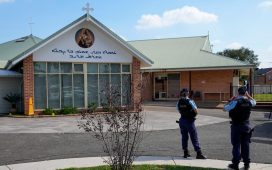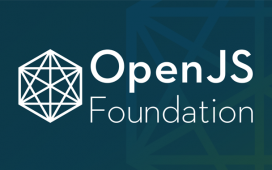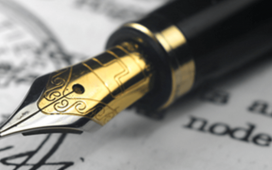Boris Johnson has been accused of preventing the publication of a report assessing the security threat posed by Russia to the UK and whether a future general election could be affected by Kremlin-sponsored disinformation.
Dominic Grieve told MPs the Russian dossier prepared by parliament’s intelligence and security committee had been held up, awaiting final security clearance from Downing Street, since 17 October.
The MP, who chairs the committee, said it was unacceptable for the prime minister to “sit on it” – and warned there was a risk the report may not be published at all before the election on 12 December.
Raising a point of order in the House of Commons, Grieve said the committee should have been given clearance to publish by Thursday so the report could be released on Monday, before parliament dissolves on Tuesday.
If clearance is not given by No 10 before the dissolution, it will not be possible to publish the report until after the election. No explanation for the “apparent delay” had been offered, Grieve added.
The MP, a former Conservative who now sits as an independent, said: “The committee has been investigating the threat posed to this country by Russia.
“We’ve produced a report which, in accordance with the Justice and Security Act, we sent to the prime minister on 17 October for him to confirm that there were no classified matters remaining – and there ought not to be because it’s already been carefully looked at by the Cabinet Office.
“That confirmation should have been received by today to thus enable publication before the house is dissolved. But I regret to say that it has not. We thus have a committee of parliament waiting to lay a report before this house which comments directly on what has been seen as a perceived threat to our democratic processes.
To vote in a UK general election you must:
- Be 18 or over on the day of the election.
- Be a British, Irish or qualifying Commonwealth citizen.
- Be resident at an address in the UK (or a British citizen living abroad who has been registered to vote in the UK in the last 15 years).
- Not be legally excluded from voting.
You also need to be on the electoral register. You only have to register once, but will need to re-register if you have changed your address, name or nationality. In order to vote in this general election you must be registered by at least Monday 25 November.
The forms can be completed online. You may need details of your national insurance number and your passport if you’re a British citizen living abroad, and want to vote in England, Scotland or Wales.
If you need help, you should contact your local Electoral Registration Office. You can use this service to find the address if you live in England, Scotland or Wales. If you live in Northern Ireland you need to contact the Electoral Office for Northern Ireland (EONI).
“Parliament and the public ought to have, and must have, access to this report in light of the forthcoming election, and it’s really unacceptable for the prime minister to sit on it and deny them that information.”
The Speaker, John Bercow, said ministers would have heard the appeal, adding: “I would hope that as the leader of the house [Jacob Rees-Mogg] is sitting on the frontbench, we might make progress on this matter – it can be expedited, potentially, and the leader might be willing to act as a messenger and we’ll have to see what the result is.”
Bercow said he hoped it would not be necessary for Grieve to have to raise the matter again.
The committee exists to provide cross-party oversight of the government’s security and intelligence activities. Its reports are cleared by Downing Street to check if there is any information that would be prejudicial to the workings of the intelligence agencies.






